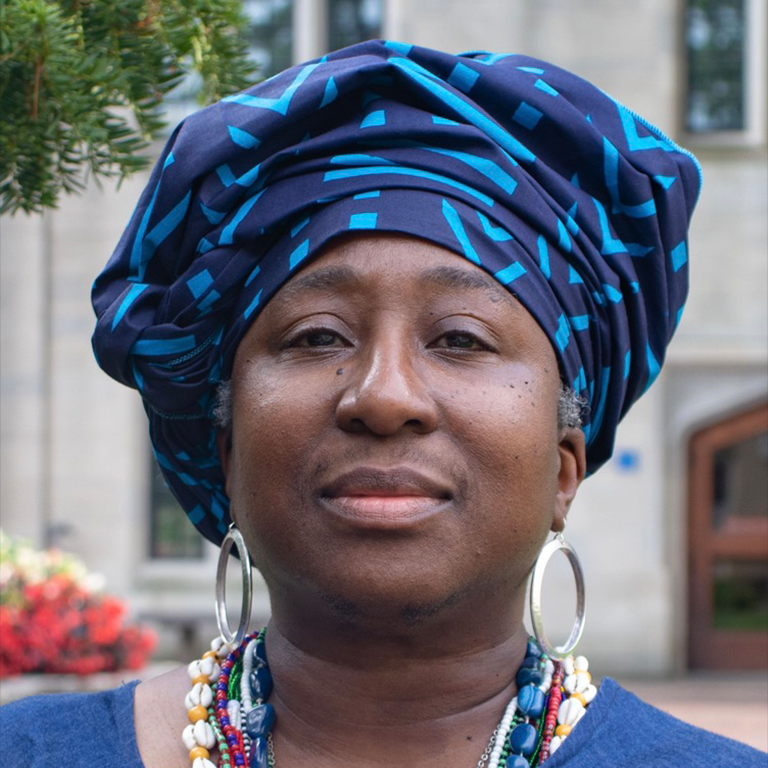
Dr. Maria Hamilton Abegunde,
Assistant Professor,
African American and African Diaspora Studies

Dr. Maria Hamilton Abegunde,
Assistant Professor,
African American and African Diaspora Studies
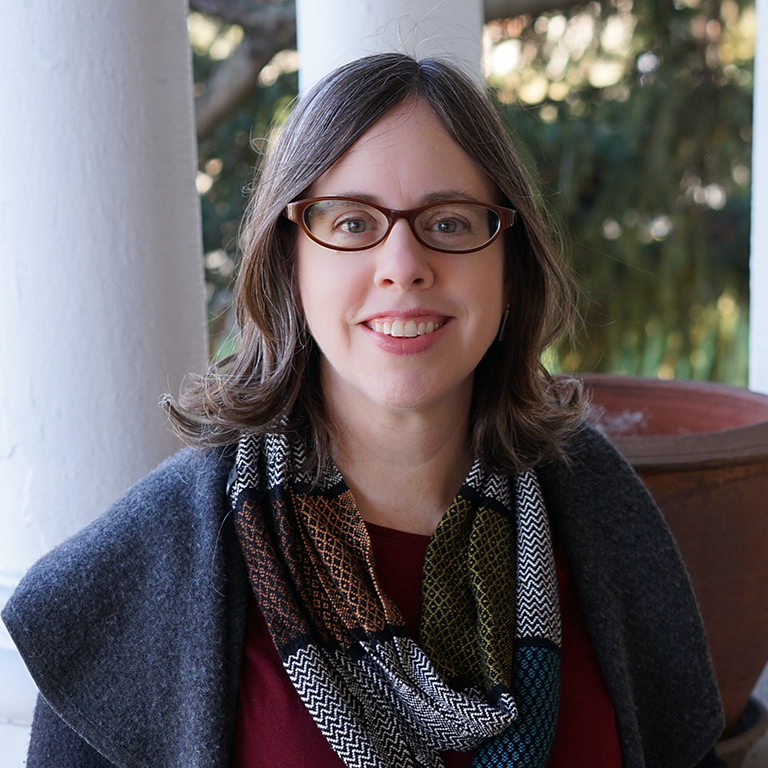
Dr. Suzanne Godby Ingalsbe,
Associate Director,
IU Institute for Advanced Study
Maria Hamilton Abegunde, Ph.D., institute co-director, is assistant professor of African American and African Diaspora Studies. Her works focus on memory, trauma, and healing, specifically TransAtlantic Slavery, the Middle Passage, genocide, and sexual violence in Black communities. She uses contemplative and healing-centered approaches to research and teach about difficult and traumatic histories in order to mitigate harm. She is a trained Civic Reflections Dialogue trainer and facilitator, and a trained Powerful Conversations on Race facilitator. Dr. Abegunde is a former team member of the UNESCO Transatlantic Slave Route/Breaking the Silence team and has retraced by ship the Middle Passage routes with the late Captain William "Bill" Pinkney. Her most recent works appear in the journals Obsidianand North Meridian Review; in the books SO WE CAN KNOW: Writers of Color on Pregnancy, Loss, Abortion, and Birth, ASHE: Ritual Poetics in African Diasporic Expressivity, Trigger Warnings, and Trouble the Waters: Tales from the Deep Blue. She is the commissioned poet for the Lynch Quilts Project, and for the exhibitions Be/Coming, Keeper of My Mothers’ Dreams, and Sister Song. Dr. Abegunde is a Cave Canem, Sacatar, Black Earth Institute, and an NEH Summer Institute fellow.
Suzanne Godby Ingalsbe, Ph.D., M.L.S. (IU Institute for Advanced Study (IU IAS), Folklore). Dr. Godby Ingalsbe is a folklorist with a background in library science and museum work. At Indiana University’s Institute for Advanced Study, she runs the Repository Research Fellowship program and Research in Repositories lecture series, along with various other research support initiatives. Her research considers how local religious museums complement and correct the historical record, serving as tools for creation and maintenance of identity. Prior to joining the Institute at IU, she was the Smithsonian Institution’s Summer Institute in Museum Anthropology (SIMA) program specialist, training researchers in collections research methods, and project manager for the National Anthropological Archives’ endangered language digitization initiative and programming around the RACE: Are We So Different exhibition.
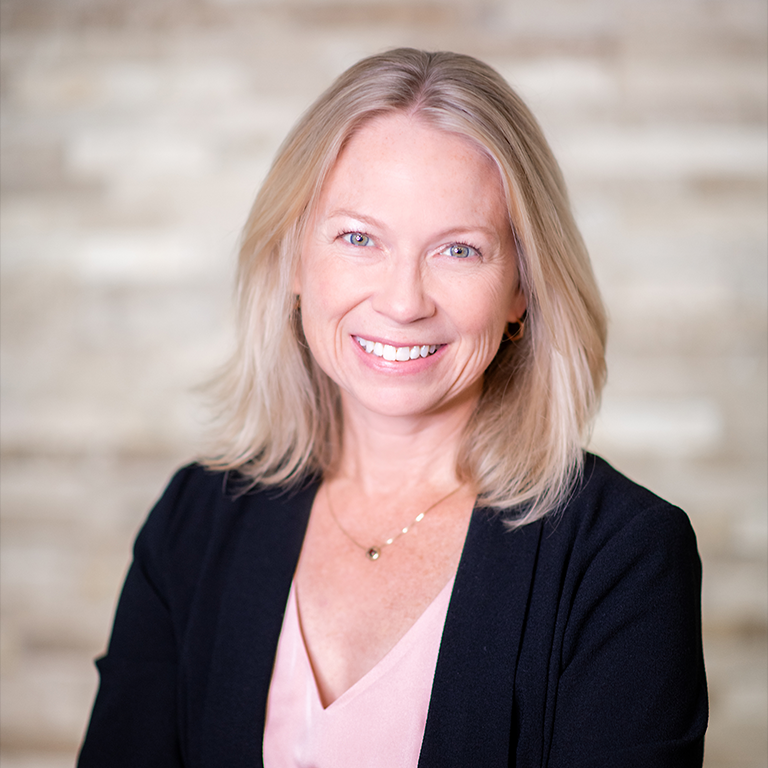
Carey Champion, MLS (Indiana University) is an Associate Librarian and Director of Wylie House Museum and the Morton C. Bradley, Jr. Education Center at Indiana University, Bloomington. She works closely with students and staff to create an inviting, dynamic, and safe space for teaching and learning. She serves as a liaison between the museum and faculty, students, scholars, and the broader community. Her research interests include pedagogical approaches to primary source instruction, place-based learning, academic house museums, and interpretive methodologies. She is committed to art as an interpretive medium, particularly in the absence of historical records. Current projects include the employment of digital humanities tools to visually demonstrate social networks among African Americans living in Monroe County, Indiana in the 19th century and a survey of the various interpretive methods used by regional heritage sites.
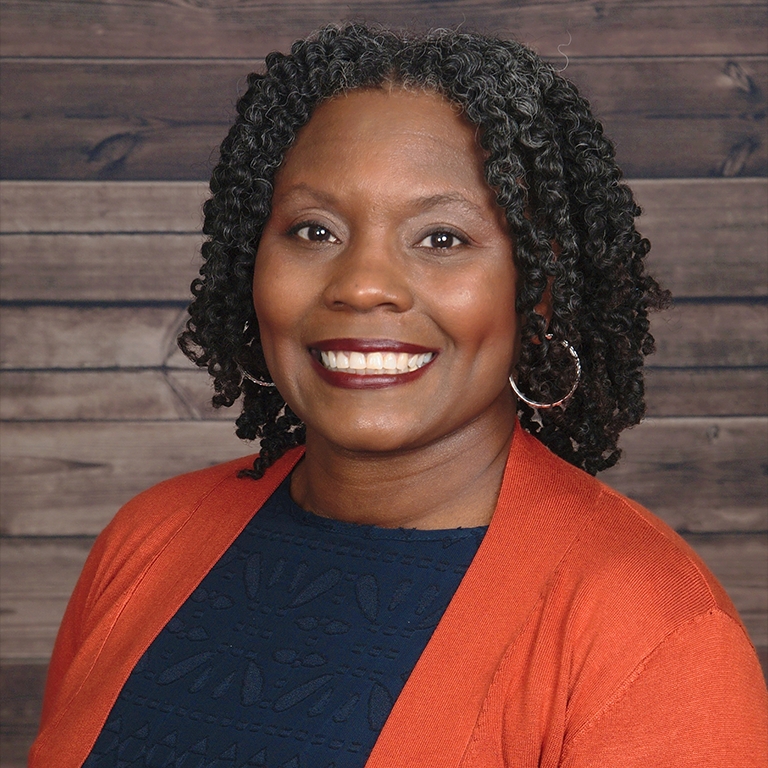
LaShawnda Crowe Storm is an artist, activist, community builder and occasionally an urban farmer. In her spare time, she is the Community Engagement Director for Spirit & Place, an initiative of the Polis Center at Indiana University-Purdue University, which utilizes the arts, humanities and religion as a catalyst for civic engagement, critical community dialogue, collaboration and experimentation. Whether she is making artwork or sowing seeds, Crowe Storm uses her creative power as a vehicle for dialogue, social change and community healing.
At the core of Crowe Storm's creative practice is a desire to create community; any community in which the process of making art creates a space and place for difficult conversations around a variety of topics, with an eye to community healing. In her words, "If life were a photo, then my artwork would be the film negative, seeking to explore those aspects in our society that have been ignored or forgotten. By printing these negatives, I give voice to the marginalized and disregarded aspects of our society."
Crowe Storm has an M.F.A. from the School of the Art Institute of Chicago and a B.A. in mass communications and English Literature from the University of Michigan. She has received numerous awards for art and community activism including but not limited to a MdW Fellowship (2023), Power Plant Award (Big Car with the Andy Warhol Foundation), Artist of Distinction Award (Indianapolis Art Council), Art Place America National Creative Placemaking Award, Creative Renewal Fellowship (2011 and 2022, Indianapolis Art Council), Imagining America Fellow in Assessing the Practices of Public Scholarship (2020) and 5 x 5 Innovative Arts Award (2015),),
Her community-training includes but is not limited to: Restorative Practices Trainer, Civic Reflection Dialogue Trainer, Trauma Informed Community Development, Community Leadership Certificate, Advancing Social Change Community Organizing Training, Racial Justice Leadership Institute, Undoing Racism and Community Organizing Training and Civic Reflection Dialogue Training. Crowe Storm is the creator and project manager of Powerful Conversations on Race, a monthly community dialogue series exploring race in America developed by Spirit & Place. Spirit & Place uses the arts, humanities and religion as a vehicle for to create space for critical community dialogue.
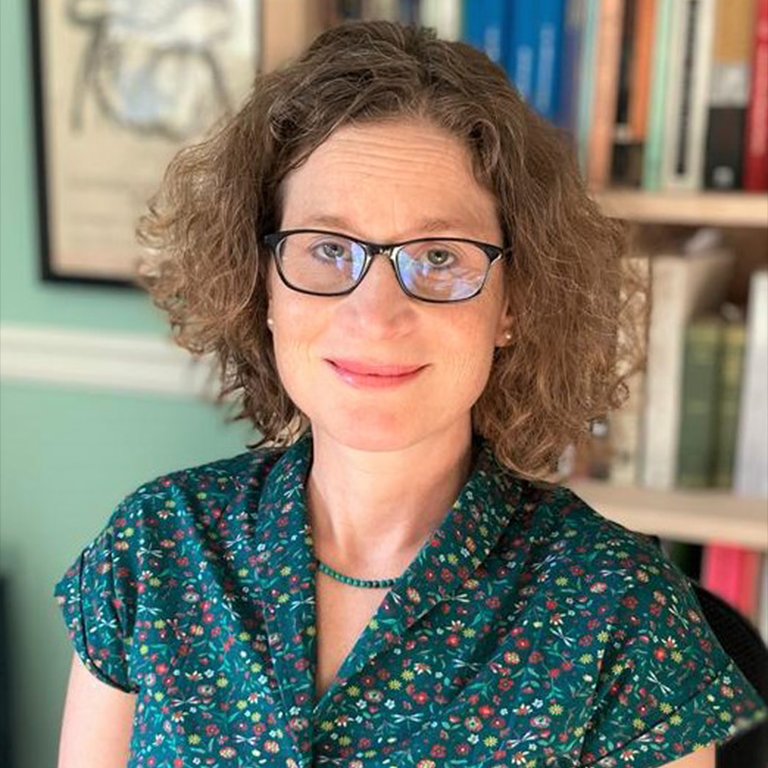
Irit Dekel is Assistant Professor in the Department of Germanic Studies and the Borns Jewish Studies Program at Indiana University, Bloomington. She is the author of Mediation at the Holocaust Memorial in Berlin (Palgrave, 2013). Dekel is a sociologist of culture and studies memory politics, ethnic and religious inequality in Germany. She has published on Philosemitism in contemporary German media, on memory activism by migrants in Germany, and home museums, their atmosphere and gender exhibition in Germany and Israel. Her co-authored article with Esra a Özyürek “The Logic of the Fight against Antisemitism in Germany in Three Cultural Shifts” was published in 2023 in Patterns of Prejudice. Dekel is currently working on her second monograph, Witnessing Positions: Jews, Minorities and Memories in Contemporary Germany
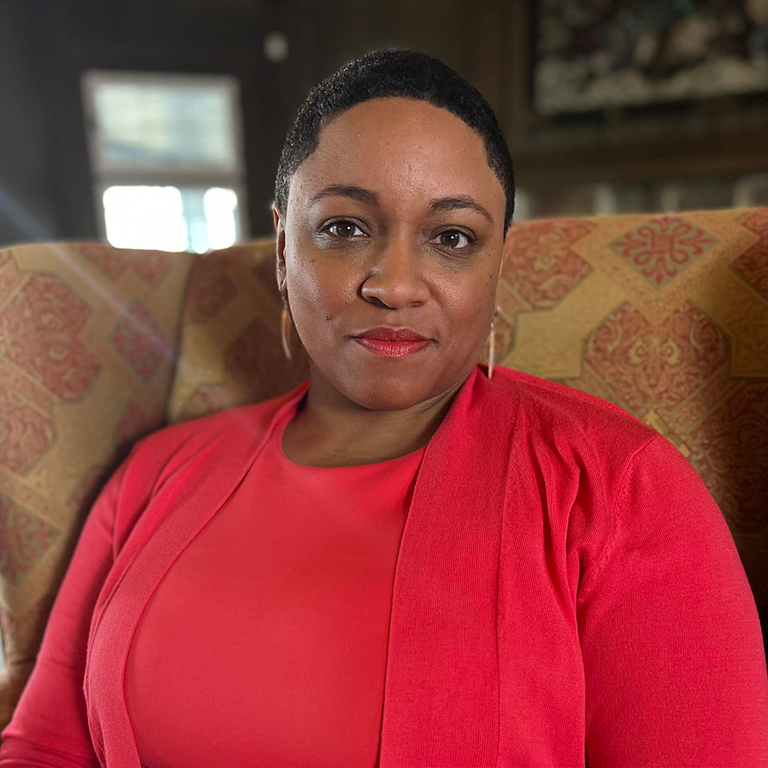
Historian, educator, and writer Charlene J. Fletcher is an assistant professor of history at Butler University. She holds a Ph.D. in History from Indiana University, specializing in 19th-century United States and African American history and gender studies. Before returning to Indiana, Charlene led a domestic violence/sexual assault program and one of the most significant prison reentry initiatives in New York City, assisting women and men in transitioning from incarceration to society. Charlene's first book, Confined Femininity: Race, Gender, and Incarceration in Kentucky, 1865-1920, is under contract with the University of North Carolina Press.
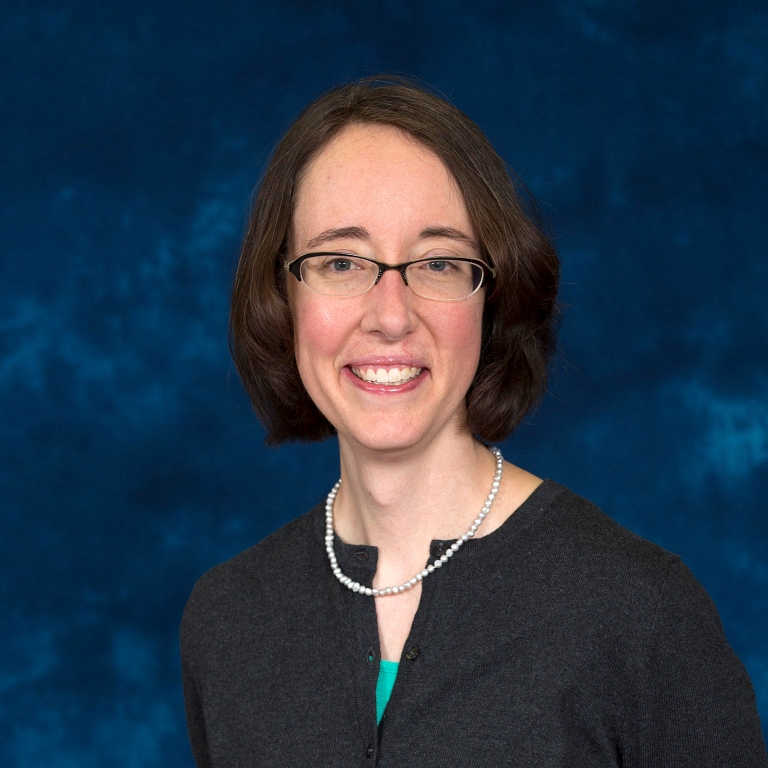
Sarah Junk Hatcher serves as the Learning and Community Engagement Manager for the Indiana University Museum of Archaeology and Anthropology. In this role, she works with faculty, community members, K-12 educators, and others to develop a variety of ways—both traditional and otherwise—for the museum and its audiences to interact. Prior to her work at IU Sarah served as the museum manager and educator for a small county historical society in Texas. Her academic background includes degrees in social studies education and history from the University of North Dakota and a M.S. in arts administration from the University of Oregon. In addition to her duties as a museum professional, Sarah is a doctoral candidate in Teacher Education and Curriculum Studies at Indiana University. Her research interests include museums in both formal and informal education, the history of social studies education, and material culture.
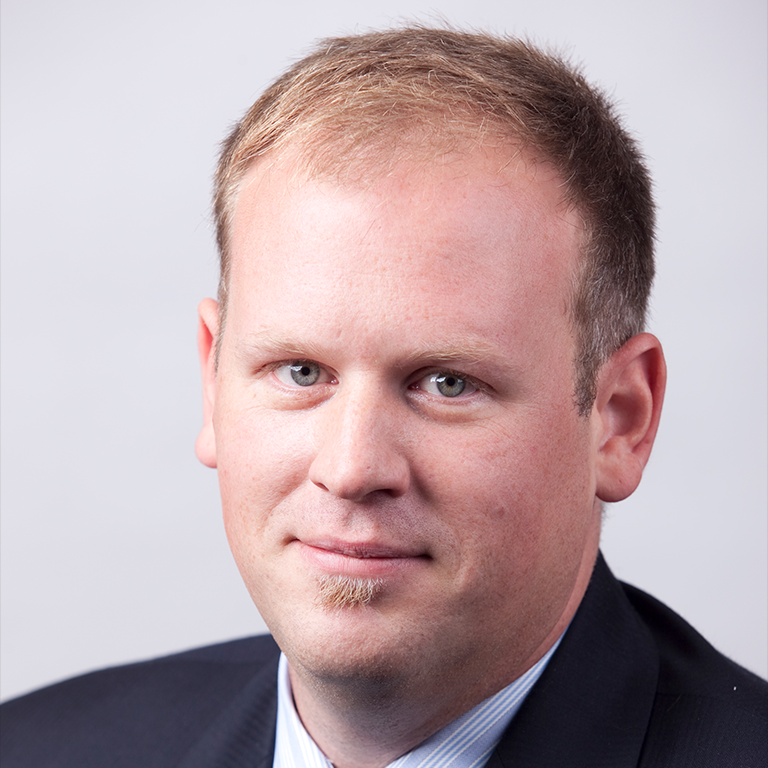
Colin R. Johnson is Associate Professor of Gender Studies and American Studies and Adjunct Associate Professor of History at Indiana University Bloomington where he teaches courses at both the undergraduate and graduate levels on LGBTQ+ studies, the history of gender and sexuality in the United States, feminist theory, queer theory, and social and cultural geography, among other topics. He also holds affiliate appoints with the Human Biology Program at Indiana University Bloomington and the Kinsey Institute for the Study of Sex, Gender, and Reproduction. Johnson is the author of Just Queer Folks: Gender and Sexuality in Rural America (Temple U Press, 2013), which was a finalist for the Lambda Literary Award, and co-editor of Queering the Countryside: New Frontiers in Rural Queer Studies (New York University Press, 2016). which was named a CHOICE Outstanding Academic Title in 2016. His next book, tentatively entitled Unfriendly Thresholds: Misanthropy and Sexual Difference in American Culture, investigates the historical relation between anti-sociality and sexual alterity in the United States. Johnson is the winner of multiple fellowships, research grants, and teaching awards.
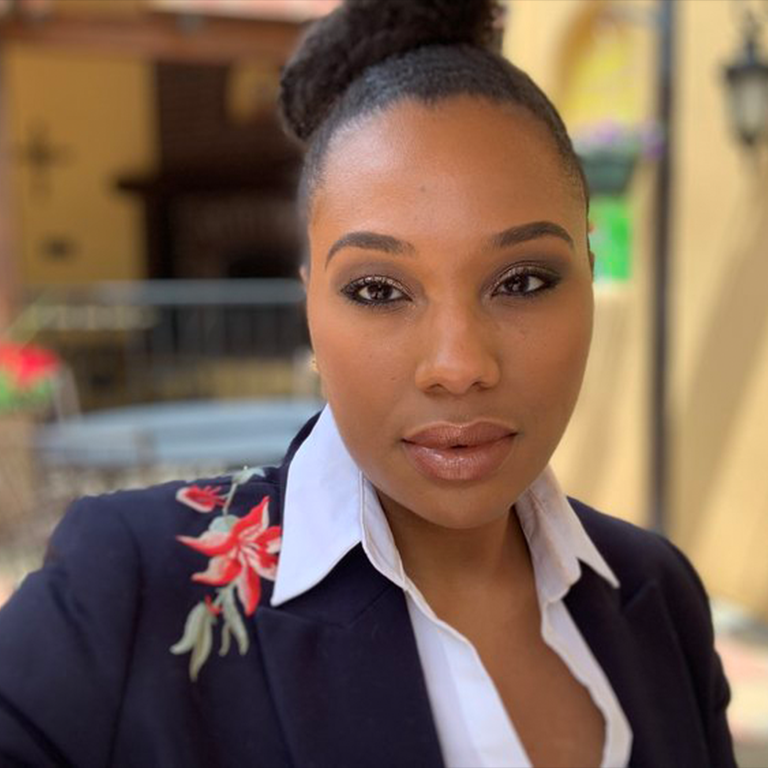
L. Renée is a poet, nonfiction writer, and collector of her family’s stories. A descendant of proud Black Appalachians who labored in coal towns and tobacco fields, she won the international 2022 Rattle Poetry Prize and Appalachian Review’s Denny C. Plattner Award. Nominated for Best New Poets, Best of the Net and two Pushcart Prizes, her work has been published in Obsidian, Tin House Online, Poetry London, Poetry Northwest, Poet Lore, the minnesota review, and elsewhere. She has received fellowships from Cave Canem, the Watering Hole, and the National Association of Black Storytellers. Her work has been supported by the Barbara Deming Memorial Fund, Inc., Oak Spring Garden Foundation, The Writers’ Colony at Dairy Hollow, Monson Arts, and others. L. Renée holds an MFA in Creative Writing from Indiana University, where she was nonfiction editor of Indiana Review, and an MS in Journalism from Columbia University, where she was a Joseph Pulitzer II and Edith Moore Fellow.
L. Renée
Website: https://lreneepoems.com/
IG: @lreneepoems
"...Before you know kindness as the deepest thing inside,
you must know sorrow as the other deepest thing.
You must wake up with sorrow.
You must speak to it till your voice
catches the thread of all sorrows
and you see the size of the cloth.
Then it is only kindness that makes sense anymore,
only kindness that ties your shoes
and sends you out into the day to gaze at bread,
only kindness that raises its head
from the crowd of the world to say
It is I you have been looking for,
and then goes with you everywhere
like a shadow or a friend."
—Naomi Shihab Nye
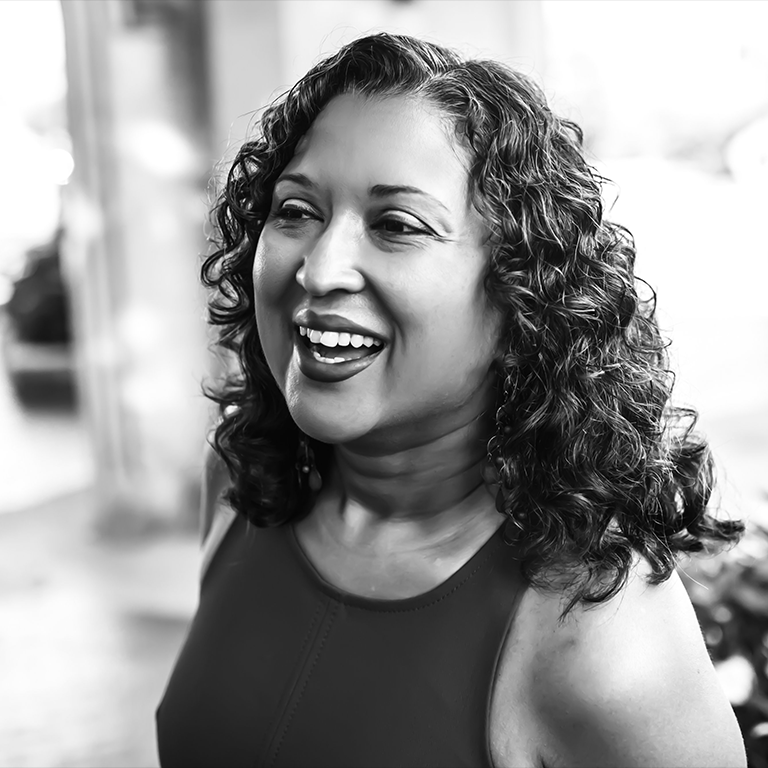
Amrita Chakrabarti Myers earned her doctorate in US History from Rutgers University and specializes in Black Women’s History, Antebellum History, Slavery, and the American South. A committed activist both on and off campus, Myers is regularly interviewed by media outlets ranging from PBS and NPR to Fox News on issues of race and gender justice, and she has published editorials and articles on policing, anti-Blackness, and racism writ large in a variety of newspapers including the Washington Post and the Louisville Courier-Journal. Her first book, Forging Freedom: Black Women and the Pursuit of Liberty in Antebellum Charleston, was published by the University of North Carolina Press in 2011 and received several awards including the 2012 Julia Cherry Spruill Book Prize from the Southern Association of Women Historians and the 2011 Anna Julia Cooper-C.L.R. James Book Prize from the National Council for Black Studies. Her latest book, The Vice President’s Black Wife: The Untold Life of Julia Chinn (Ferris & Ferris, 2023) is now available at all retailers. She is currently the Ruth N. Halls Associate Professor of History and Gender Studies at Indiana University, Bloomington where she is also the Director of Graduate Studies in the Department of History.
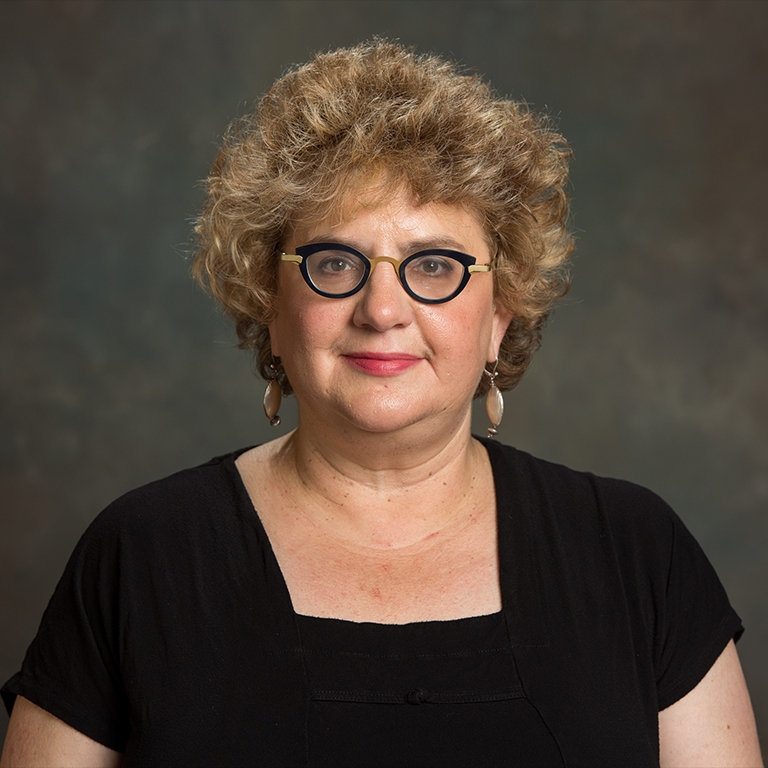
Elana Newman, Ph.D. is the McFarlin Professor of Psychology and Affiliate Faculty in Media Studies at the University of Tulsa; and Research Director of the Dart Center for Journalism and Trauma, (www.dartcenter.org). Newman specializes in understanding and treating trauma-related conditions and training students and professionals from many professions about the skills they need to work effectively with people suffering from trauma-related problems. Newman’s research in the field of traumatic stress has examined a wide range of topics including the physical and psychological effects of trauma exposure upon adults and children, health care costs and trauma, journalism and trauma, occupational health and trauma, research ethics in studying trauma survivors, correctional issues and trauma, and substance abuse and trauma. Currently she is examining what interventions work best for children post mass disaster.
Most of her current work focuses on journalism and trauma including the occupational health of journalists, including safety, harassment, educational needs, coping with trauma exposure, ethics, and the impact of trauma news on consumers. She directs the creation of an online searchable database of articles related to journalism and trauma available at the Dart Center website. She also trains journalists on interviewing survivors, trauma-informed news management, covering traumatic events in local contexts including sexual violence on campus, self-care and occupational health and general trauma information. Newman consults with journalists and documentary film makers about various ethical and professional trauma-related issues related to storytelling. Newman is a founding staff member of the Journalist Trauma Support Network to train qualified therapists to care for trauma-impacted journalists team member of (www.jtsn.org). She co-directed the Dart Center for Journalism and Trauma’s’ first satellite office in NYC after 9-11. Outside of her work in journalism, Newman has worked to disseminate trauma-focused best practice in public clinic, educational and criminal justice settings and help define trauma competencies in mental health practice. She also consults to lawyers and museums about trauma-related topics. She has worked with Gilcrease Museum on trauma-related programming and educational programming. With the Greenwood Rising Museum, she provided psycho-educational support during the soft opening of the museum for descendants and special guests as well as trained docents on how to handle traumatic responses. Newman is a past president of the International Society for Traumatic Stress Studies.
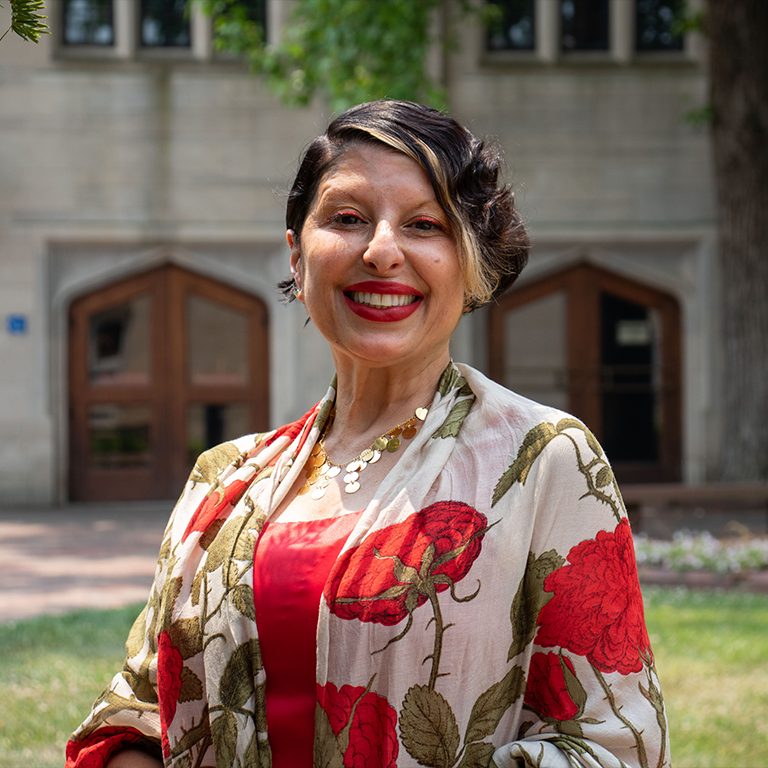
Solimar Otero is the Director of the Latino Studies Program, and Professor of Folklore and Gender Studies at Indiana University, Bloomington. She is also the editor of the Journal of Folklore Research. Her research centers on gender, sexuality, Afro-Caribbean spirituality, and Yoruba traditional religion in folklore, performance, literature, and ethnography. She is the author of Archives of Conjure: Stories of the Dead in Afrolatinx Cultures (Columbia University Press 2020), which won the 2021 Albert J. Raboteau Prize for the Best Book in Africana Religions. She is also the author of Afro-Cuban Diasporas in the Atlantic World, (University of Rochester Press, 2010); co-editor of Yemoja: Gender, Sexuality, and Creativity in Latina/o and Afro-Atlantic Diasporas (SUNY Press 2013); and co-editor of Theorizing Folklore from the Margins: Critical and Ethical Approaches (Indiana University Press, 2021). Dr. Otero is a Folklore Fellow of the American Folklore Society. She has also received a Ruth Landes Memorial Research Fund grant, a fellowship at the Harvard Divinity School’s Women’s Studies in Religion Program, and a Fulbright award.
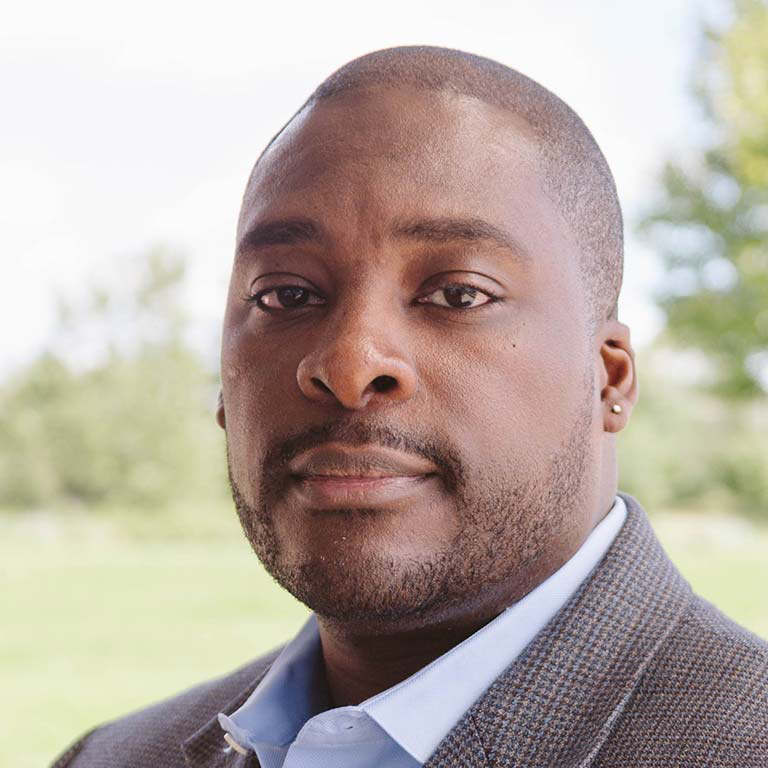
Dr. Jakobi Williams is the Ruth N. Halls Associate Professor and Chair of the Department of African American and African Diaspora Studies, and he holds a joint appointment in the Department of History at Indiana University-Bloomington. He is a Civil Rights, Black Power, Social Justice, and African American history scholar. He has provided hundreds of invited lectures domestically and abroad on the subjects of Civil Rights and social justice movements. Dr. Williams serves as an consultant regarding Civil Rights issues and history for the Andrew W. Mellon Foundation, Southern Poverty Law Center, The National Civil Rights Museum, The National Humanities Center, The Social Justice Initiative at the University of Illinois-Chicago, and the Kairos-Center for Religion, Rights, and Social Justice—which helped to found the New Poor People’s Campaign led by Rev. Barber. His most recent book, From the Bullet to the Ballot: The Illinois Chapter of the Black Panther Party and Racial Coalition Politics in Chicago, was published by the University of North Carolina Press under the prestigious John Hope Franklin Series and the book was the foundation for the script to the multi-Oscar award winning Warner Brothers film, Judas and the Black Messiah.
His other peer reviewed publications have appeared in the Journal for Civil and Human Rights; Black Perspectives; Black Women, Gender, and Families; Journal of Pan African Studies; University of Georgia Press; University of Wisconsin Press; and the New Press. His work can also be found in Jacobin Magazine, Tikkun, Mother Jones, Gawker, Vox, and the Indianapolis Star. Dr. Williams has appeared in dozens of media programs in radio, television, newspaper, and podcast formats. A brief list includes, NPR, NBC News, Time, Vox, the National Humanities Center’s Nerds in the Woods Podcast and Humanities in Class Webinar Series, and the Southern Poverty Law Center’s Teaching Hard History Podcast and Learning for Justice Series. Dr. Williams most recent awards include the Mellon Foundation funded Black Metropolitan Research Consortium fellowship, National Endowment for the Humanities grant, the National Humanities Center fellowship, and the Big Ten Academic Alliance-Academic Leadership Program award. He received his BA in History from Southern Illinois University-Carbondale, his MA in African American Studies and PhD in History both from UCLA. He has also held positions at UCLA, the University of Illinois at Urbana-Champaign and the University of Kentucky.